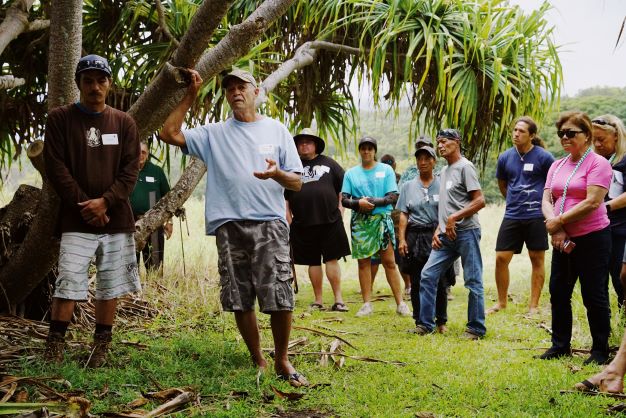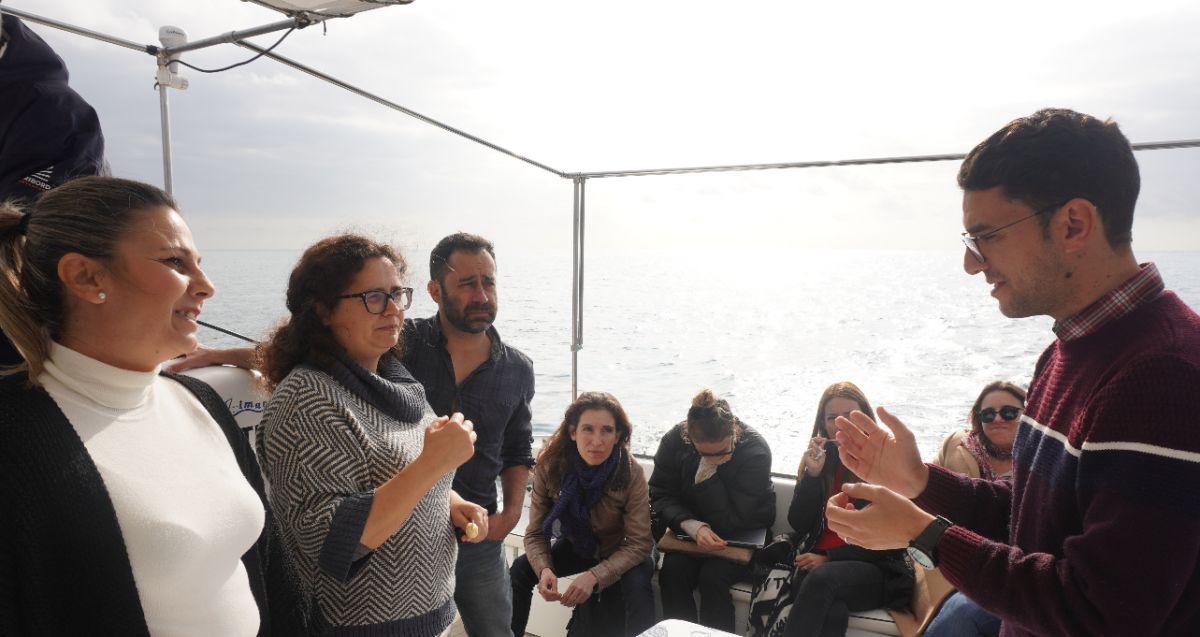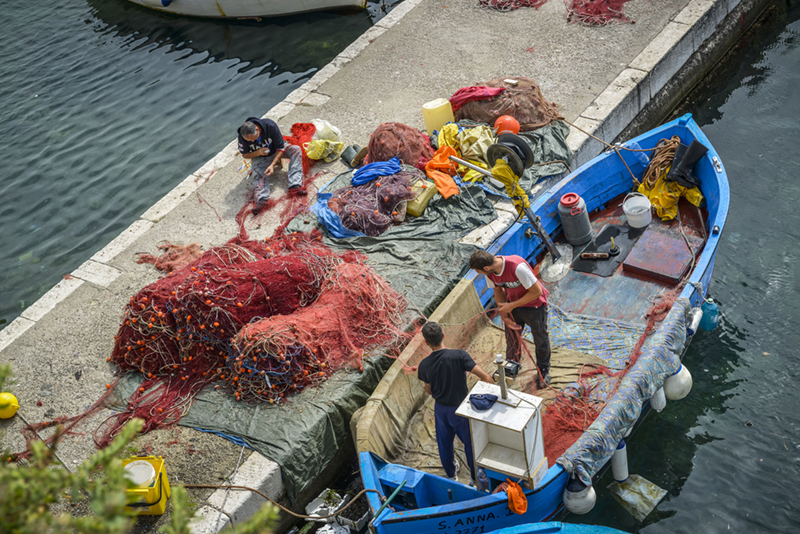Progress on Community-Based Subsistence Fishing Areas (CBSFA)
CEESP News: The authors of this article are members of the E Alu Pu Network the founding network of Kua'aina Ulu Auamo or KUA, an inaugural IUCN IPO Member. KUA's Executive Director Kevin Chang is a member of CEESP.
World Oceans Day in Hawai’i coincided this year with real progress on practical steps by two rural Native Hawaiian subsistence fishing communities to ensure fishery abundance for future generations.

On June 7, the Kīpahulu ʻOhana on Maui met with about 100 members of the community to hear comments on a set of rules developed by members of lineal lawaiʻa (fishers) families over the last few years. Their efforts were inspired by similar community efforts at Moʻomomi on Molokaʻi and Hāʻena on Kauaʻi.
A rule package Scoping Meeting hosted by the DLNR-Division of Aquatic Resources (DAR) addressed questions from community members about the reasons for the rules and noted suggestions for modifications. Led by DAR’s Adam Wong and facilitated by Luna Kekoa, the meeting allowed for in-depth discussion of the reasons for bag limits, restrictions on modes of fishing and extensions of the kapu season. Several people thanked Kīpahulu ‘Ohana for their efforts. The next step will be to finalize DAR’s draft rules and request a formal public hearing from the Board of Land & Natural Resources (BLNR) under the Chapter 91 Administrative Rule-Making Process.
On World Oceans Day itself, Gov. David Ige signed into law four bills to protect marine resources.
On June 9, following World Oceans Day, the BLNR held a decision-making hearing to adopt proposed CBSFA rules shepherded by the community organization, Kalanihale, on behalf of the Fishing Village of Miloliʻi, Hawaiʻi island. That hearing resulted in BLNR’s adoption of the rules which now await the Governor’s signature. The vote was unanimous. The public process for Miloliʻi leading up to adoption drew strong community interest and support with more than 150 people attending in-person or virtually, or submitting testimonials at DAR’s first hybrid public hearing. In the shadow of COVID, both meetings posed concerns but virtual meetings helped broaden access for many who might not otherwise have been able to attend the hearing in person. The presence at both events of three generations of lawaiʻa families with a long history of subsistence from the ice box of their ocean speaks for a more responsible and sustainable future in how we steward the resources gifted by the planet.
“This is about the lawai`a of Miloliʻi self-managing their harvests and caring for their marine resources. Pursuing a Community-Based Subsistence Fishing Area (CBSFA) designation is a reclamation of what was old, made relevant for today – codifying traditional and customary practices into new fishing rules, promoting lawai`a pono (responsible fishing). CBSFAs allow the DLNR to leverage community-based knowledge and cooperation to implement fishery governance and management strategies that are truly sustainable,” said Uʻilani Naipo, a key member of one of the fishing families of Miloliʻi who have been steadfast in using traditional knowledge to mālama their ice box.
The families act from a deep sense of their responsibility to steward the ocean’s resources. Their actions are based on kilo (careful observation).
“We don’t see the limu. The life cycles are off,” said local fisher, Michael Kalani Forcum. “We’ve seen a decline in pākuʻikuʻi, kole, uhu, and other important subsistence species,” said another fisher, Leivallyn Kaupu.
Next steps
Once the governor signs off, the state and the community will transition into a collaboration to co-manage the CBSFA. As keepers of generational place-based knowledge, Miloliʻiʻs Mohala Nā Konohiki apprentices will co-manage the CBSFA by helping to survey and monitor.
"I am committed to monitoring our marine life through managing what I harvest and what I see others harvest," says Mohala Nā Konohiki apprentice, Darrell Lopez.
Another Konohiki apprentice, Melissa-Ann Māhealani Waite-Crawford said,"My children will one day rely on the resources we have. But those resources wonʻt be here if we donʻt do our part to take care of it now."
Happy World Oceans Day!
For more information or interviews, please contact
Kaʻimi Kaupiko - lineal descendant, traditional lawaiʻa, educator and community leader of Miloliʻi
Uʻilani Naipo - lineal descendant and community leader of Miloliʻi
Kauiki Lind - lineal descendant, lawaiʻa, and community leader



